Many herbs are traditionally used to treat inflammatory skin diseases like eczema. Traditional Chinese herbal medicine uses many herbs to treat the itchy and scaly skin caused by eczema. Even India’s traditional ayurvedic medicine has its own list of herbs proven to be effective against skin diseases.
Treatment for eczema usually includes corticosteroids, antihistamines, and many others to help lessen your immune system’s response. However, if you’re looking for a more natural alternative, you can use medicinal herbs. Many medicinal plants and herbs have antioxidants and compounds that help reduces inflammation, soothe skin, and offer many benefits.
What Can Cause Eczema?
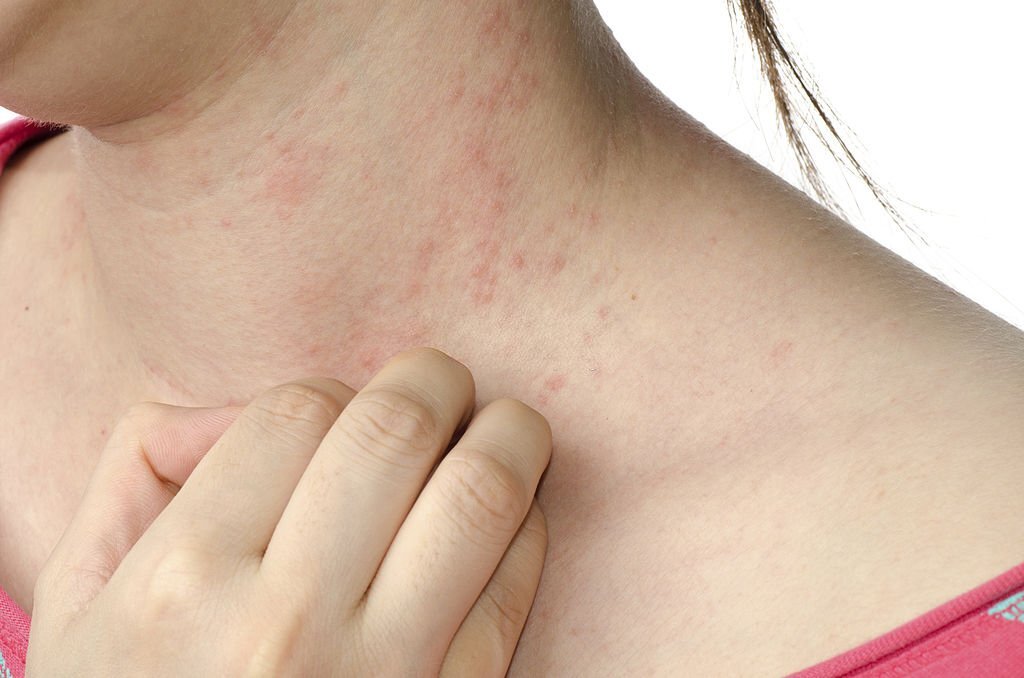

Eczema, also known as atopic dermatitis, is a common inflammatory skin disease that can occur in people of any age. It’s characterized by itchy, red, dry, and irritated skin. The common causes of eczema are the following:
Hormonal changes
For women, eczema may occur when nearing their menstrual cycle period or when their near menopausal. The drop in estrogen level causes skin dryness and may lead to irritation and eczema. Meanwhile, pregnant women who experience high estrogen levels can also experience flare-ups due to increased immune cells called “helper” T lymphocytes.
When you’re stressed, an increase in the stress hormone cortisol can also lead to eczema.
Allergies
Eczema can also be triggered by food or environmental allergens. The body’s immune system responds to allergens causing redness and itchiness, leading to a flare-up. Common allergens are:
- Irritants like soap and detergents
- Too cold or too dry weather
- Food allergens like cow’s milk, eggs, wheat, peanuts, etc.
- Dust mites, or pollens
Infections
Several forms of infections can also cause eczema flare-up due to harmful bacteria. Staphylococcus, Streptococcus, or others can cause infected eczema. It can also be caused by fungal infections such as the fungus Candida.
Infected eczema occurs when bacteria or viruses secrete toxins to the skin that causes an immune reaction, leading to skin inflammation.
If you want to know the best herbs that you can use to treat eczema, we list them below. We also provided ways to use these potent herbs and how they work against skin disease.
How Can Herbs Treat Eczema?
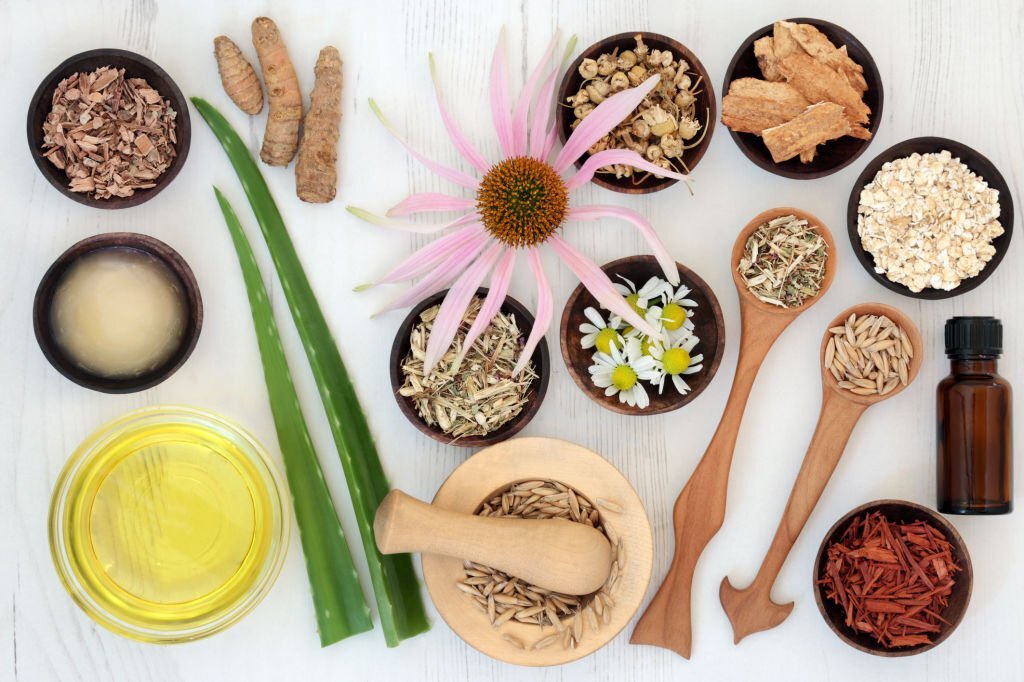

Many herbs contain powerful antioxidants like polyphenols that fight against skin inflammation.
Some herbs offer antibacterial and disinfectant properties that work well against infected eczema. They can inhibit the growth of microbes, bacteria, and viruses in the skin.
Herbs, especially herbal tea, can help soothe and calm your senses when you’re having an eczema flare-up. They are perfect sedatives against itchiness. Herbs also contain many compounds and vitamins that help restore the skin barrier against infection or irritation.
There are even more reasons why herbs can be beneficial to eczema treatment. You can read more below for more detailed information.
The 10 Best Herbs To Treat Eczema
We listed the 10 best herbs that will help treat eczema. Many of these are easy to find, while some may need a little research. Nevertheless, they all have something good to offer against that itchy skin disease.
- Turmeric
- Cardamom
- Neem
- Witch hazel
- Indian sarsaparilla
- Aloe vera
- Chamomile
- Calendula
- Liquorice
- Milk thistle
1. Turmeric


Turmeric is widely used in herbal and complementary medicine to treat many diseases. Most of its medicinal and therapeutic properties come from the curcumin compound.
Studies show that curcumin can help treat eczema by building a skin barrier against free radicals, microbes, allergens, and irritants that can cause inflammation. Curcumin does this through nuclear factor-KB inhibition, the suppression of inflammatory mediators.1
It also helps heal the wounds caused by eczema by improving the skin’s collagen.
Turmeric paste is a natural, safe, and inexpensive treatment against eczema. You can mix turmeric with honey and drops of lemon until it turns into a paste. Apply on the infected skin for 10 to 15 minutes and then rinse.
2. Cardamom
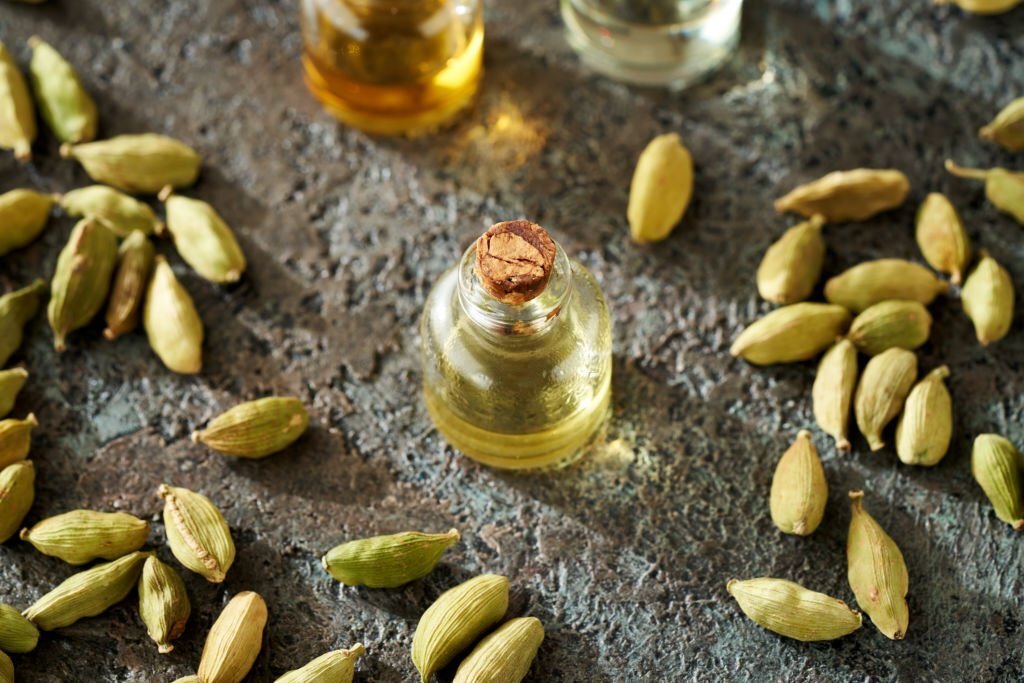

Cardamom is another potent herb with antioxidant and antimicrobial properties.
Cardamom is highly beneficial in infected eczema and other skin conditions like psoriasis and acne because of its cinnamaldehyde compound. It’s a potent antimicrobial and antifungal agent that inhibits and reduces bacterial tissue load, especially Candida albicans and Streptococcus, the common pathogens causing infected eczema.
It also leads to faster wound healing through the promotion of new cell regrowth. To use cardamom, mix cardamom oil with honey and apply it to the infected area. Rinse after 10 to 15 minutes.
3. Neem
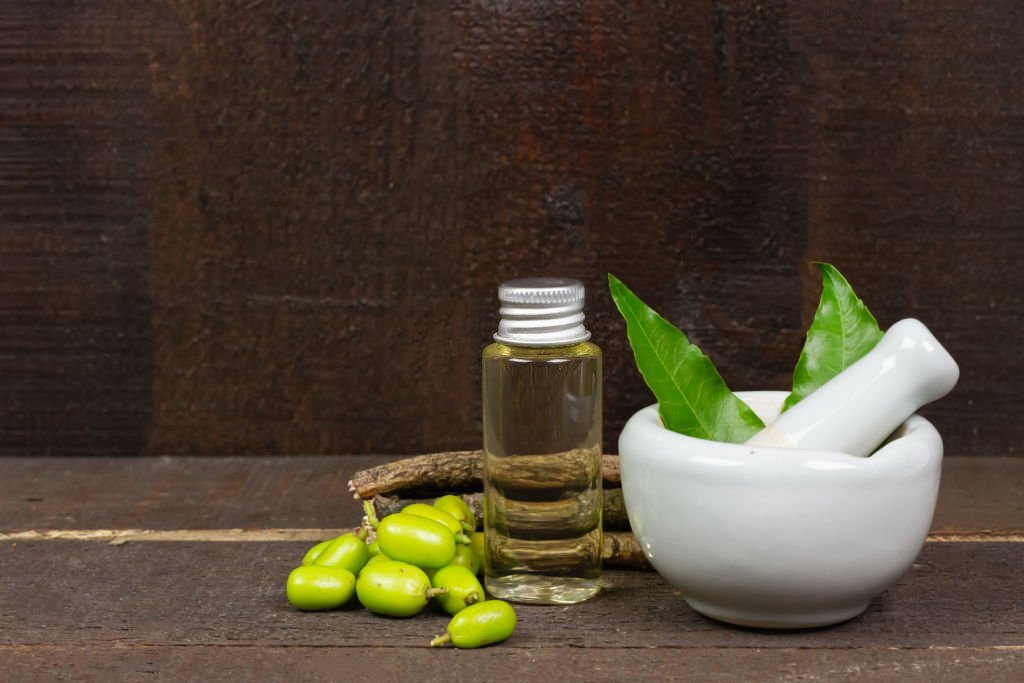

Even many dermatologists recommend using neem oil to treat skin conditions like eczema. This potent herb is rich in natural fatty acid and vitamin E content that helps restore the skin’s protective barriers. These nutrients soothe and reduce the inflammation of the skin.
Studies show that neem also contains over 400 phytochemicals that inhibit free radicals and oxidate stress, which are among the causes of skin inflammation.2
You can use neem oil as a spot treatment. Simply dap a small amount of neem oil directly into the skin area.
4. Witch Hazel
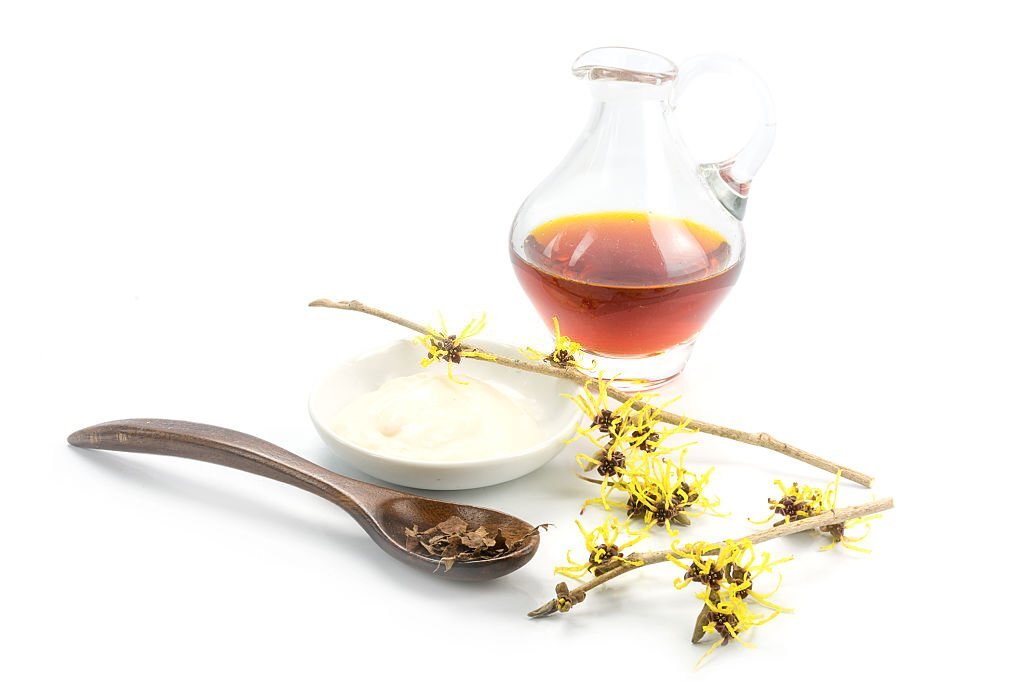

This astringent herb contains polyphenols and tannins, compounds with antibacterial and anti-inflammatory properties. Witch hazel is effective against “weeping” or oozing eczema or sores. Witch hazel’s tannins compound binds with fluids, effectively dries up the skin, and relieves inflammation. It improves the skin’s transepidermal water loss and redness and stops further irritation.
To use witch hazel, soak some gauze in the extract and apply it around the lesion. If it’s weeping eczema, you may need to wrap the gauze around the lesion and cover it with something dry before leaving it on overnight.
5. Indian sarsaparilla
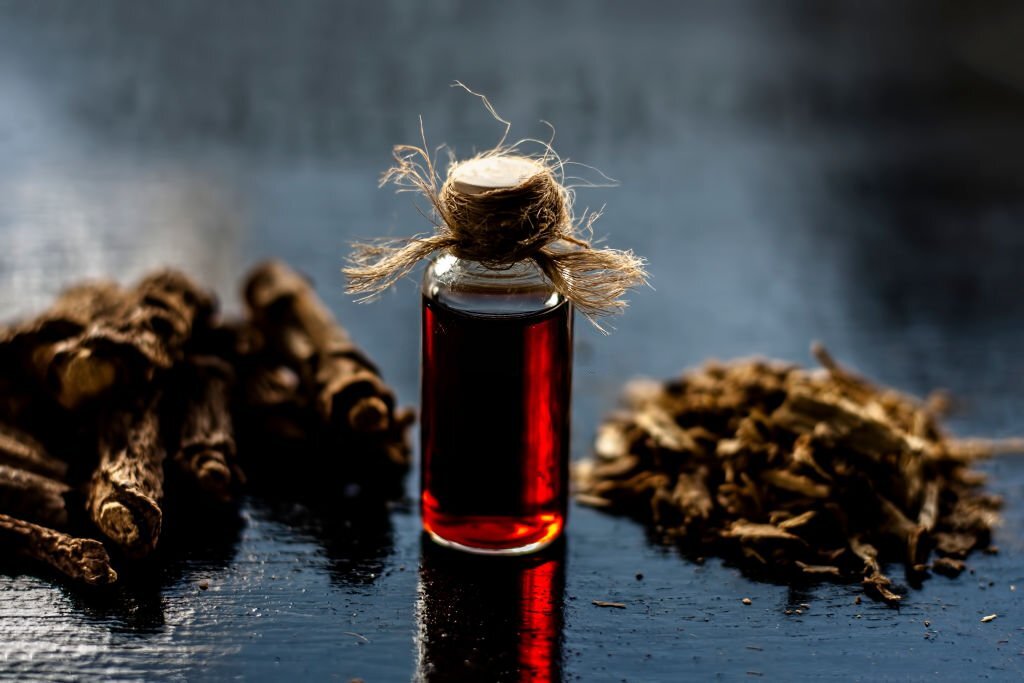

The root of sarsaparilla has many health benefits. Traditionally, sarsaparilla has been used for joint problems and skin disorders like eczema.
This herb has saponins, compounds that relieve skin itching and kill bacteria. Saponin works like a steroid against inflammations by binding and inhibiting endotoxins, which are responsible for an allergic reaction.
Sarsaparilla is widely available in many formats, such as tablets, teas, capsules, tinctures, and powders. You can make a paste and apply it to the affected area.
6. Aloe vera


Aloe vera works well against eczema because it’s a natural moisturizer. Eczema caused by hormonal changes often results in very dry skin. Aloe vera’s cooling effects can hydrate and soothe eczema-damaged skin. This is because aloe vera contains polysaccharides that increase collagen production stimulating skin growth and healing.
Aloe vera also has antifungal and antimicrobial properties that work well against infected eczema. Simply apply aloe vera gel liberally all over the infected skin. Let the skin absorb and dry.
Read More: Best Herbs For Skin Regeneration
7. Chamomile
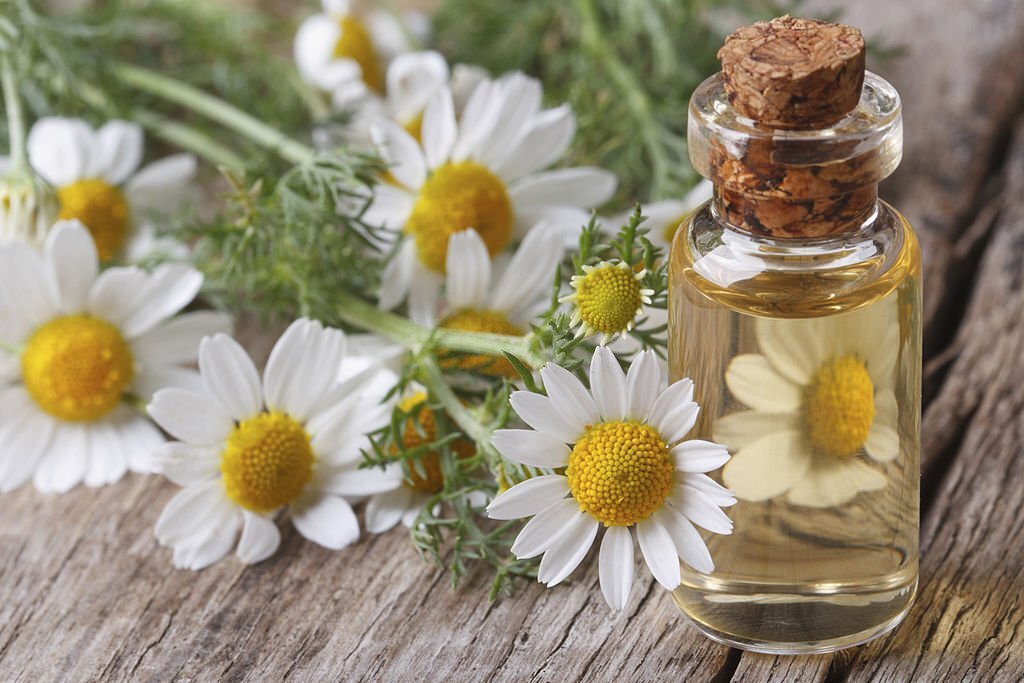

Chamomile is one of the most ancient and popular herbal medications used for many diseases. It can treat diarrhea, hay fever, insomnia, and many skin infections.
Read More: Tea For Diarrhea & Upset Stomach
A study showed that topical application of chamomile is effective in treating atopic eczema. Chamomile contains matricin, a superior anti-inflammatory compound that penetrates below the skin surface into the deeper skin layers. The potent herb has anti-inflammatory and antiphlogistic properties, meaning it not only reduces skin inflammation but even prevents it from occurring again.3
The study showed that chamomile is about 60% effective as 0.25% hydrocortisone cream. Use chamomile as an essential oil, and you can apply it topically or use a diffuser.
8. Calendula
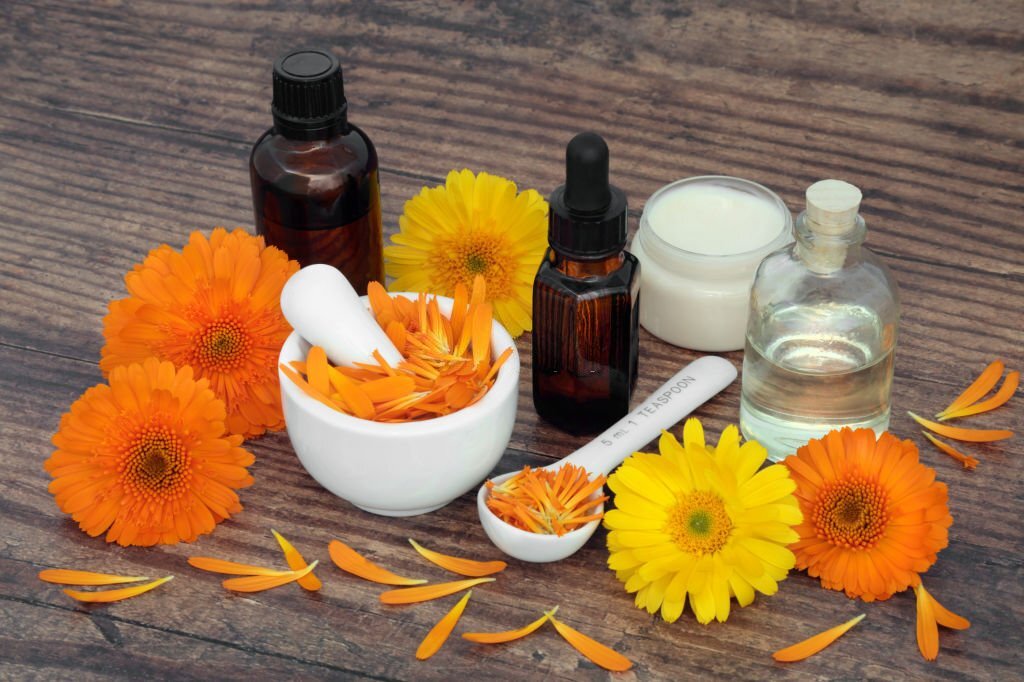

Calendula officinalis is an annual herb known by herbalists for its beneficial properties. The calendula oil has antibacterial and antifungal properties that work well against skin infections like diaper rash and infected eczema.
Like sarsaparilla, calendula contains saponins, which gives it its anti-inflammatory properties. Calendula oil soothes the irritation caused by eczema. Studies show that calendula tincture effectively treated furunculosis and contact and atopic dermatitis.4
You can use calendula by applying a calendula oil or cream on your skin twice daily. Mix the oil with honey until it becomes a paste to make a calendula cream.
9. Licorice
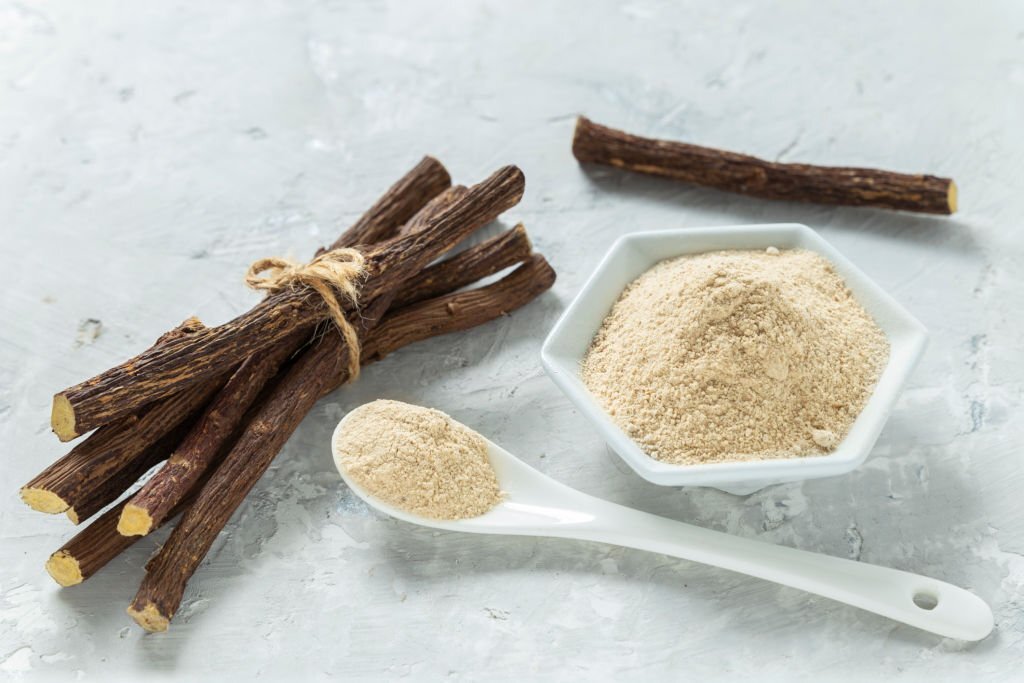

Liquorice, also spelled licorice, is an herb that can reduce skin inflammation and infection. Licorice root contains glycyrrhizin extract that is an effective agent against atopic dermatitis.5
Glycyrrhizin has a cortisone-like effect that inhibits inflammation and works well against allergies and skin irritation. You can use licorice as a topical gel or turn it into a cream by adding honey.
10. Milk thistle
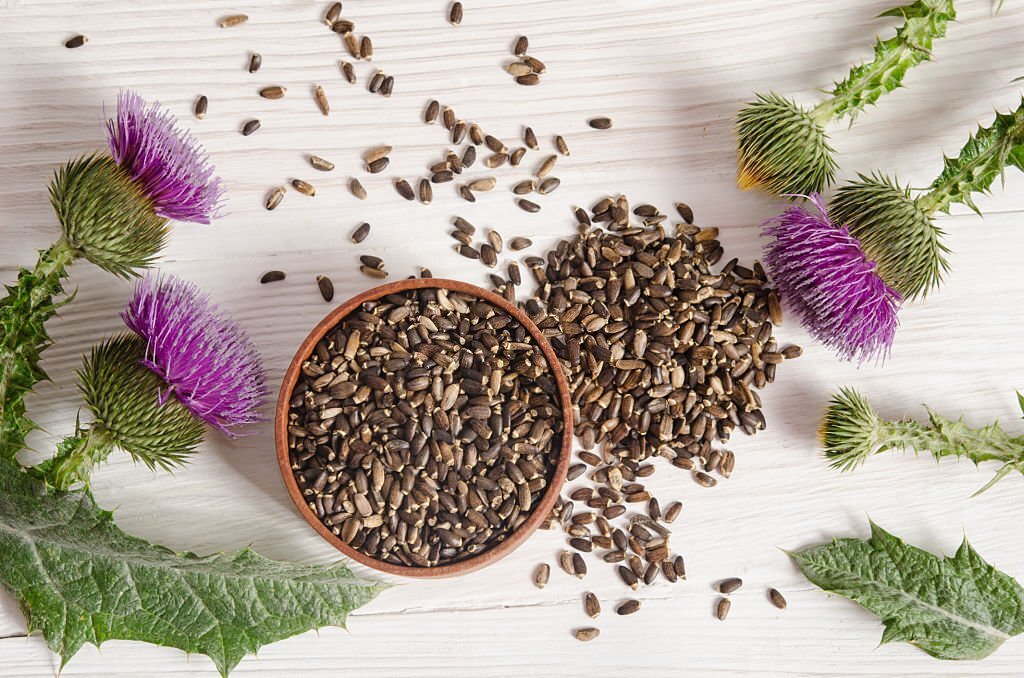

Milk thistle is another herb that provides many health benefits to the skin. It’s rich in silymarin, a natural polyphenolic flavonoid. Studies show that silymarin can inhibit irritations and allergies associated with contact dermatitis.6
To use, simply apply milk thistle oil to your skin.
Other Home Remedies For Eczema
If you’ve already tried many treatments but continue to experience eczema, you can try these simple home remedies. They provide quick and easy solutions to relieve the itchiness and the symptoms of eczema.
1. Bleach Bath
Taking a bleach bath can help disinfect your skin from microbes that cause eczema. Warm water also does wonders to soothe your irritated skin. To do this, dilute ½ cup of household bleach in your bathtub filled with warm water. Soak your body in a relaxing bath but don’t submerge your head.
2. Apply a cold compress
Cover the infected area with wet compresses to numb the nerves from itchiness and protect the skin against scratching.
3. Use a humidifier
Allergic eczema can be caused by an excessively dry environment, a humidifier can help provide moisture. You can even add drops of essential oils like chamomile to help reduce inflammation.
In Short
I hope this list of herbs can be beneficial to you as you treat eczema! There are many causes of eczema and there are also many treatment options. There’s more benefit than harm in trying natural alternatives such as herbs.
These powerful herbs contain many compounds such as saponins, polyphenols, and many others that inhibit inflammation. Many herbs also moisturize the skin and build barriers against infections. The next time you feel the symptoms of eczema, give these potent herbs a try!
References:


